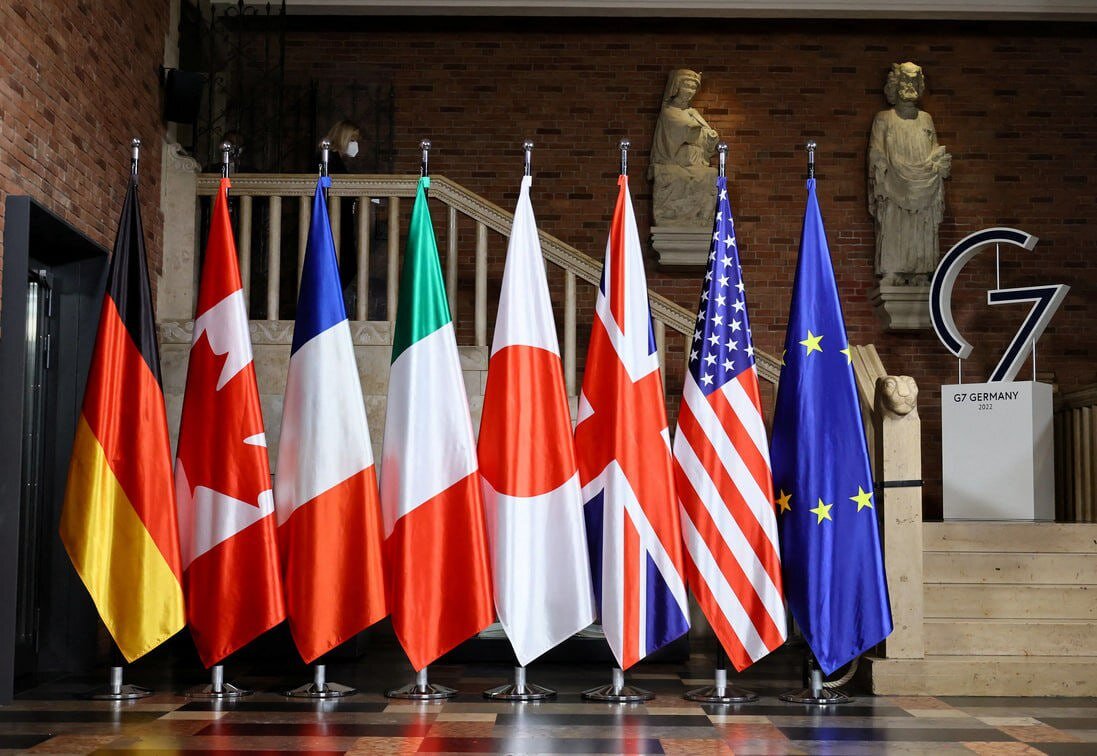G7 tacitly backs Israel as aggressor

TEHRAN- The Group of Seven (G7), in their recent summit in Canada, once again laid bare the glaring double standards that underpin Western foreign policy, particularly in the volatile Middle East region.
The G7 leaders’ joint statement implicitly backs Israel’s unprovoked, illegal and surprise strikes on Iran, claiming Israel has right to “defend” itself.
Israel started the war amid the nuclear negotiations between Iran and the U.S.
In the early hours of Friday, June 13, Israel attacked Iran, killing a number of Iranian military commanders, nuclear scientists, and civilians.
The attack happened two days before Iranian Foreign Minister Abbas Araghchi and U.S. representative Steve Witkoff were to hold nuclear talks in Muscat, Oman.
Instead of saying Israel has the right to “defend” itself, it was better the G7 say Israel has “right” to attack Iran, as it was openly expressed by German Chancellor Friedrich Merz.
In its statement, the G7 labels Iran as the principal source of regional instability and terror. This stance reveals a deeply-biased approach that undermines international law, disregards human suffering, and prioritizes geopolitical interests.
The illusion of neutrality
The G7's declaration affirms Israel's right to “self-defense” without noting the serious repercussions of Israel's military activities against Iran, which have caused considerable civilian casualties.
Compared to Israel's 24 civilian deaths, Iranian health officials say over 220 fatalities—mostly civilians. Still, the statement's wording deliberately avoids condemning Israel's attack and instead places the blame completely on Iran as the "principal source of regional instability".
This selective framing disregards the basic tenet found in the United Nations Charter which forbids the use of violence against the territorial integrity or political independence of any state except in self-defense or with Security Council sanction.
By endorsing Israel’s surprise strike, the G7 tacitly condones violations of Iran’s sovereignty and international law. Such a stance is not only legally questionable but dangerously escalates tensions in an already fragile region.
The absence of a balanced condemnation or even a call for accountability for civilian casualties starkly contrasts with the G7’s vocal criticism of other conflicts, such as Russia’s especial operation in Ukraine, where the group has unequivocally condemned aggression and emphasized civilian protection.
Geopolitical interests over humanitarian concerns
The G7’s emphasis on protecting “market stability” in international energy markets underscores the economic calculations driving their political positions.
The Middle East’s vast energy resources are a critical factor shaping Western policies, often at the expense of civilian lives. The prioritization of energy security and geopolitical alliances with Israel reveals that the G7’s support is less about promoting peace and more about maintaining strategic dominance.
Iran’s nuclear program is cited repeatedly as a justification for Israel’s attacks and the G7’s hardline stance. However, Iran maintains that its nuclear activities are for peaceful purposes under the Nuclear Non-Proliferation Treaty (NPT), to which it is a signatory, while Israel, a non-signatory, is widely believed to possess nuclear weapons.
The West, particularly the United States, has avoided to back a call by Iran and other regional countries for a Middle East free from nuclear weapons.
Ignoring the human toll and rights violations
The G7’s failure to adequately address the humanitarian impact of the conflict is glaring. Civilians bear the brunt of the Israeli-initiated war. Iranian cities are being targeted and the specter of broader regional war is looming.
The G7’s support for Israel includes tacit acceptance of continued arms exports to Israel, further emboldening the occupation regime in perpetuating the cycle of violence.
The selective empathy displays not only delegitimizes the G7’s moral authority but fuels resentment and mistrust among populations in the region.
Consequences for regional diplomacy and security
The G7’s unequivocal backing of Israel’s military campaign fans the flames of war and hearts the hardliners in Israel.
Moreover, the move deepens Iran’s mistrust of Western intentions, reducing incentives for Tehran to engage constructively in nuclear negotiations or regional peace talks.
By selectively applying principles of sovereignty, self-defense, and human rights, the group undermines its own stated commitment to peace and stability.
For the sake of genuine conflict resolution and regional security, it is imperative that the G7 and the broader international community adopt a consistent, principled approach. This includes condemning all acts of aggression and prioritizing the protection of civilians.
Leave a Comment